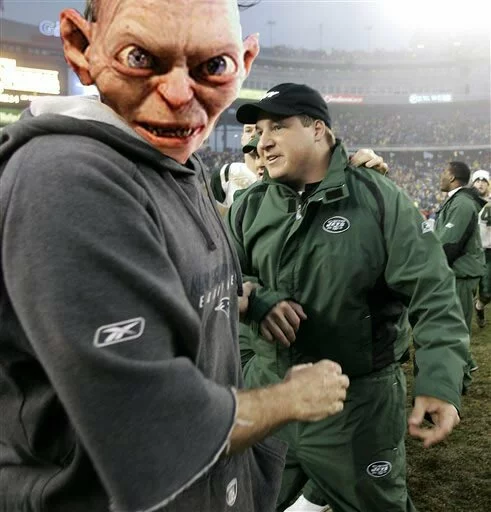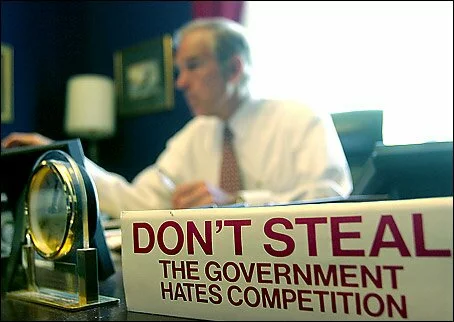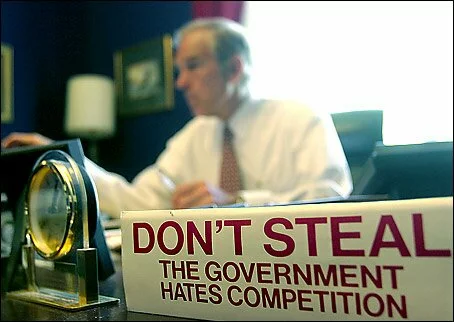Shutter Island Berated
Scorsese does it again. While Shutter Island is not about the mob or gangs or Italy or wiseguys or illegal drugs, it still has that Scorsese feel. There are a few common elements carried over from his previous film The Departed, such as Boston accents and Leonardo DiCaprio, but that is where the similarities end. There are only about 10 “f-bombs”, in contrast to the 100+ in his other films. There are 2 violent/bloody scenes, in contrast to the usual 10+ in his other films. An finally, there are 0 crazy, old, tough-guy actors (Robert Deniros, Joe Pescis, and Jack Nicolsons), in contrast to 1+ of his other films. The point is that Martin Scorsese has deviated from the type of film genre he usually dabbles in (quite successfully) to venture into the realm of psychological thriller, and he proves that he is quite skilled in it. I’m hoping for a romantic comedy next, followed by a new installment in the college humor Van Wilder series.
The Good
When I go see a film in this genre, I am aiming to experience that good ol’ frightened feeling. Not the type that makes me jump out of my seat, but the type that runs a little deeper in the “disturbing” department and causes me to intermittently reflect back on the movie over the next week, remembering how disturbing it was and trying not to spoil it for people who haven’t seen it yet. So, how does Mr. Scorsese approach this genre? Take a look at the following elements that he uses in Shutter Island:
- A 1950s mental institution
- An island with one way on and one way off
- A lighthouse
- A brewing storm
- A German psychiatrist
- People smoking cigarettes (aaaaahhh!!!)
How can that movie not be scary? Even if Micheal Bay directed that movie, it would still be scary for at least 1 minute, depending on who composed the music. BURN! Think about it – old mental institutions are just plain scary because you never know what type of weird brain surgeries they’re performing on their patients. An island in the North Atlantic surrounded by 100-foot shear bluffs? Scary. A lighthouse? Scary (see: The Ring). A brewing storm? Adds that element of ominous evil. A German psychiatrist? Seeing as how the Nazis performed all those crazy psychiatric experiments – scary.
So, it is scary. We know that now. But what else was good? Leonardo DiCaprio was very very good. He plays the all-to-familiar character with a troubled past. But it’s what we find out about his past that blows the familiarity away. What really makes this film stand out, however, is the plot. If you haven’t seen it, you probably shouldn’t be reading this blog post anyway, but at least don’t read the next sentence, because even though I’m not saying anything specific about the movie, it will still probably lessen the whole experience for you. Shutter Island is one of those films that you think you have figured out early on, but then it purposely causes you to second guess your initial prediction, and then it makes you go back and forth the rest of the movie. “Oh I know how this ends…”, “Nevermind, I have no idea how this ends…”, “Oh… wait, yep – I know what’s going to happen…”, “Actually, shoot, nope, I think I’m wrong… or am I?” And it makes you do that literally until that last frame of film.
This is definitely one of those movies that you will most definitely have to have conversations about afterwards. You know how people talked about the Spielberg film “A.I.”? Well this will cause some similar discussions. Pay attention to the very last line of dialog that Leonardo DiCaprio says. I know what it means – but did you catch it?
One final word on The Good of Shutter Island (spoiler!): it does such a good job with the insaneness of some of the characters, that a few times I started thinking things like “What if I’m not really sitting here in this chair watching this movie? What if I’m actually insane right now and none of this is real?” And I love that it could do that to me.
The Bad
There was a section of the movie, from about 60% of the way through to about 90% of the way through, that started to lose me. And that’s a big chunk of film. There was so much vague, referential dialog that I started forgetting who was who. I know the purpose was to make you try to figure out what was real and what was imagined, but it went on too long and started to lose some of the audience. It started to lose some of its realism and poignancy for me, and I wish it would have kept us guessing a little bit more. Despite the fact that later in the film we are thrown off the scent again, I don’t like how long of a section of the film I was sitting there sure where it was going to go, and some of the conversations could have been cut in half. The flashbacks started getting a little redundant too. They were all pretty much the same thing, and they were mostly in slow motion, which put me in a different place and made it harder for the film to pull me back in once the flashback was over.
The Beratings
Acting – No Beratings. Leo shines, as do the psychiatrist characters.
Plot – No Beratings. Keeps you guessing, even after you think you guessed the ending.
Inconsistencies – 1 Berating. I’m deducting a point for the 60-90% section of the film I talked about earlier.
Unbelievable Events – No Beratings. The insane factor actually makes everything quite believable.
Semantics – 1 Berating. The flashbacks were too much, enough to merit a berating point.
2/10 Beratings = See it at full price
The Berating Scale
0/10 Stand in line for the very first showing
1/10 See it the first weekend
» 2/10 See it at full price
3/10 See it at the Five-Buck-Club
4/10 See it at the dollar-fifty
5/10 See it OnDemand
6/10 Rent it from Blockbuster
7/10 Watch it on TV
8/10 Watch it purely for spousal points
9/10 Never watch it
10/10 Buy it and publicly destroy it


















